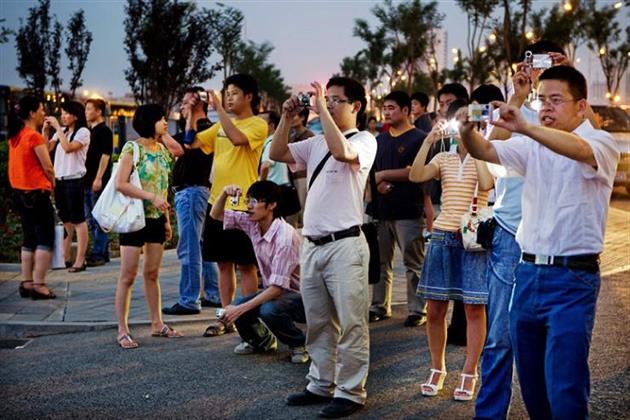Why hipsters have more fun, and why taking so many pictures is part of it
Relevant topics Archive, Conversion
‘Come on, let’s take a selfieeeee!’
What do hipsters, tourists and that Instagram addicted friend we all know, have in common? They all seem to take pictures of almost anything, making them seem very uninterested their surroundings and, even worse, in you. Seem. Because recent research shows the exact opposite might be the case.
With 80 million Instagram and two billion Facebook photos posted daily (2015), we are living an extremely digital and frameable age. People are (increasingly) taking photos of almost any type of experience (I actually saw a photo of a baby who defecated all over herself in the backseat of a caron my friend’s timeline today). From food, to friends, to fantastic holiday destinations; we want to capture moments to commemorate on a rainy day.
When the experience is right
In a recent study, Diehl, Zauberman and Barasch (2016) scientifically (3 field and 6 lab experiments including self-reports and eye-tracking) show that taking a photo actually makes that moment more fun.
Imagine you’re out with your lover. Should you grab your phone to take that romantic albeit somewhat cliché photo of the two of you? By any means, do it. Taking that picture will direct greater visual attention to the most characteristic aspects of the event (you might even notice that she bought a new dress for the occasion), and actually increase the experienced joy (as compared to not taking a picture). It is the cognitive process (attention) that comes with capturing the moment that increases the bliss, not the mechanical click on a button or screen. The psychological principle behind taking photos and the greater enjoyment of an event lies in attention.
Add more fun, or misery, to your occasion
Be warned though, when taking the photo becomes overly intrusive. When you have to reposition the whole dinner table, you have to fix your hair – in other words, when taking the photo disturbs the nice time you were having – there is no beneficial joy from taking the photo. Also, when you take her out to stop the nagging (“We haven’t done anything fun lately”), but you don’t really enjoy spending time together anymore, bear in mind that taking photos amplifies engagement. So if you’re having a horrible time, taking a photo will only point out that it is a horrible night. And that maybe, it’s time to leave the birdie in the camera box.

Showtime!
Next time you’re run over by a group of cellphones on sticks or huge cameras with matching tripods (e.g., people), don’t be annoyed. Be happy. Think about the increased delight they‘re experiencing.As a marketer, think about the added value of a shopping experience. Add a photo booth or a photo stop, to let your customers enjoy and commemorate their positive experience in your shop. As online purchases are a common thing, one can think of a webcam-shot that can be taken after purchasing a new item. For example, when a customer bought a new shirt online (positive experience), let them take a webcam selfie that shows the customer in that shirt (and perhaps some funny attributes in the background to commemorate and enhance the positive experience).
Further Reading
-
The Paradox of Choice Revisited
Did you read Barry Schwartz’ book The Paradox of Choice - Why More is Less? If not, this sentence is your executive summary:
There is such a thing as having too much choice
There are many scientific studies on the subject. Some find having more choice enhances consumers’ assortment evaluation and increases purchase likelihood. Others conclude more choice negatively effects satisfaction and, again, purchase likelihood.


